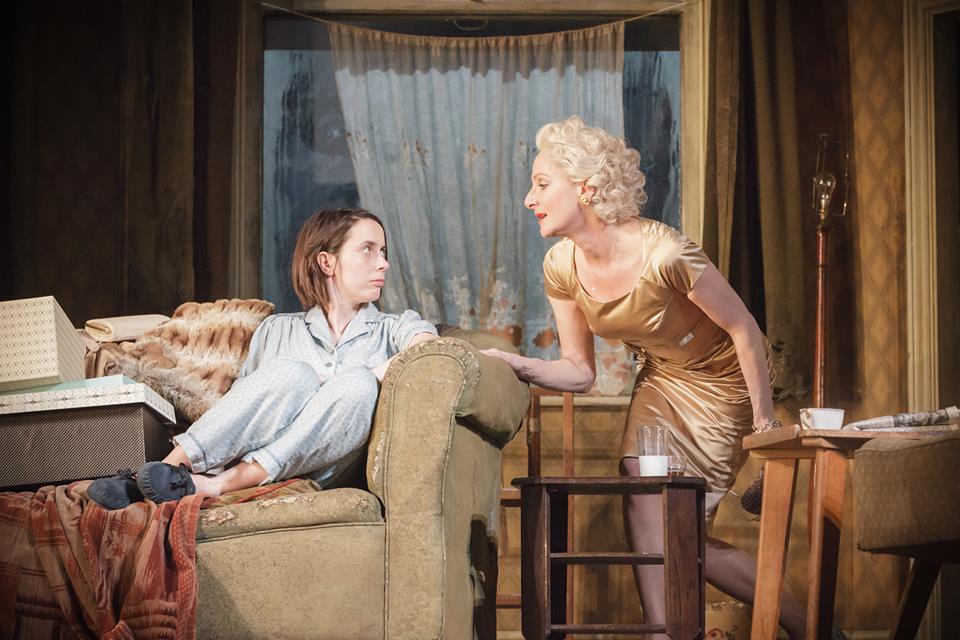September started busily, with two conferences in successive weeks, at both of which I gave papers. The first conference was the annual conference of TaPRA (Theatre and Performance Research Association) in Glasgow. The second was Turning the Page: Creating New Writing 1945-2013, at the University of Reading.
At Reading, I gave a paper on a panel entitled From Ink to Inc. about changing patterns in new playwriting. My argument was that the distinction between playwriting and writing for theatre - brilliantly proposed by Chris Goode in a blog piece that I have thought about often since I first read it six years ago - is interesting but incomplete and that playwriting AND theatre writing are, at best, the same thing; a play is both complete in itself and incomplete, waiting to be competed by performance. A performance of a play is, in Derrida's terms, a supplement. This is something that problematises the idea of a play's boundaries and produces some very interesting, destabilising effects. It also means, I suggest, that the playwright can never fully collaborate, that there is always a gap or a remainder in the play text. I gave several examples of performances that seemed to work in that gap, deploying its effects. The texts/shows I discuss are Andy Smith's Commonwealth, Deborah Pearson's The Future Show , Chris Goode's Hippo World Guest Book, and my own Theatremorphosis.
In Glasgow, my paper was called Is the Theatre a Zombie? and it concerns Naturalist theatre and neuroscience. I contend that Zola's view of human beings pitches them on the borderline betwee life and death, which is connected with his physicalism: he seems humans as objects of the physical world only, and entirely subject to its rules. As such, the processes and components of the human are neither alive nor dead. I suggest that this connects him with contemporary neuroscience which, in many of its iterations, reduces mind states to brain states. More significantly, there have been arguments against this kind of physicalist reduction from philosophers using the Zombie Argument. A philosophical zombie Is a person who resembles an ordinary human being in every respect but they don't have a mind – instead, they have some way in which they can receive imports and produce appropriate behavioural outputs, but they don't have what philosophers call qualia: they have no experience There is something it is like to be a human being, as Thomas Nagel influentially put it, but there is nothing it is like to be a zombie. But we know that we are not the same as zombies, so the physicalist reduction must be an incomplete description of us. (I shortcut the argument, obviously.) I suggest that zombies are both a manifestation of Zola's physicalism and a problem for it.
I go on to describe another (more famous) thought experiment, John Searle's 'Chinese Room'. The computational view of the mind - particularly in its behaviourist version - says that if you talk to a computer for a certain period of time and it behaves like a human being to the extent that you can't tell whether or not you're talking to a computer, we should say it has intelligence. That's the Turing Test, basically. John Searle imagines being placed in a room with a large set of instructions; people feed Chinese characters on paper into the room; John Searle follows the instructions to write more Chinese characters on pieces of paper and posts them result out of the room. Assuming that the instructions are accurate, to anyone outside the room it would appear that the room understood Chinese. However, as John Searle points out, he does not understand Chinese. Therefore the Turing test is not an accurate way of establishing whether someone possesses understanding or intelligence. In a sense, the Chinese Room thought experiment is very similar to the Zombie Argument; the Chinese room is a kind of zombie.
One objection to the Chinese Room thought experiment - the so-called 'systems argument' - is to say that so may not possess intelligence or understanding of the room as a whole does. Intelligence is produced through a system, a network of relationships, not just through the CPU. Searle's answer to that is to imagine that, rather than possessing a set of instructions on paper, let's imagine that the operator of the room memorises all the instructions. Now it appears that the person possesses internally understanding of Chinese – but still the operator actually does not. I suggest at the end of my talk that in this iteration of the Chinese room argument, Searle is describing a situation much like theatre: a situation in which agents are required to memorise instructions on how to perform certain acts, say certain things, move in certain ways, in response to other things that people do or say. However, that more or less implies that actors are perfect puppets – or perhaps simply paint on the director/artist's brush – which is not a satisfactory image of the actor. The neuroscientific picture of the brain is about as plausible as that model of theatre practice and for the same reasons. My tentative conclusion is that looking at Zola's apparent failure in realising his theatrical ambitions Naturalism might end up being a certain kind of historical investigation into the faultlines of the neuroscientific project.
It's a first pass at the argument, but I hope to elaborate it over the next year or so.





















![photo[1].jpg](https://images.squarespace-cdn.com/content/v1/513c543ce4b0abff73bc0a82/1362919072201-PZO854G4SEB794DVOEI8/photo%5B1%5D.jpg)
